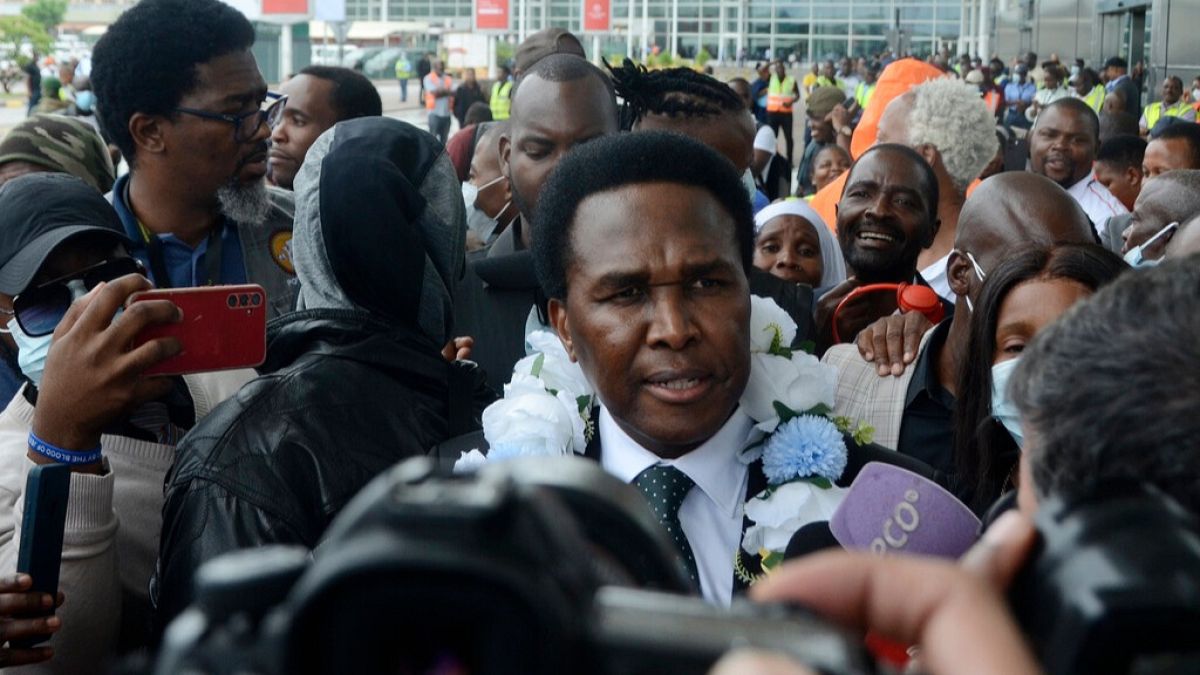European countries vote to give farmers more freedom to shoot wolves
The decision by Bern Convention members is a major win for the EU and Commission President Ursula von der Leyen.
Countries across Europe have backed a proposal to lower the protection status of the continent’s wolves, in a major win for the European Union and for farmers who want more freedom to shoot animals that threaten their livestock.
At a meeting in Strasbourg on Tuesday, members of the Bern Convention on the Conservation of European Wildlife and Natural Habitats approved a bid to modify the status of wolves from a “strictly protected” to a “protected” species, according to a press statement.
This clears the way for the EU to modify the Habitats Directive and make it easier for national authorities to grant derogations to kill wolves deemed to pose a threat to farmers’ livestock. That process is expected to take about a year.
It’s a personal victory for European Commission President Ursula von der Leyen, who campaigned to get this proposal through EU governments, and whose pet pony Dolly was killed by a wolf in 2022.
Countries that supported the proposal included Andorra, Armenia, Georgia, Iceland, Norway, North Macedonia, Moldova, Liechtenstein, Serbia, Switzerland and Ukraine, along with all 27 EU members.
The United Kingdom rejected it, as did Montenegro, Bosnia-Herzegovina, Monaco and Albania, while Tunisia and Turkey abstained, according to two people in the room.
“The change will enter into force in three months, unless at least one third of the Parties to the Council of Europe’s Bern Convention (17) object,” the press release stated.
Von der Leyen welcomed the outcome, saying it was “important news for our rural communities and farmers” and represented “a balanced approach between the preservation of wildlife and the protection of our livelihoods.”
Hunters also cheered the decision. “[T]his presents an opportunity for the Habitats Directive to accommodate this conservation success. There are still some legal hurdles, but they are now achievable,” said Laurens Hoedemaker, president of the European Hunters Federation.
Conservationists not happy
Léa Badoz, wildlife program officer at Eurogroup for Animals, said the move was turning the large carnivore into EU policymakers’ “latest political pawn,” arguing that “downgrading protection will not solve the challenges of coexistence nor help farmers.”
Sabien Leemans, senior biodiversity policy officer at WWF European Policy Office, also condemned the vote, saying it “puts decades of conservation efforts at risk.”
Experts had warned that the EU’s bid to change the protection level of wolves was grounded in prejudices rather than scientific evidence.
Now, the change of protection status needs to be enacted into EU law to be effective, which requires modifying the Habitats Directive — a piece of legislation that is largely seen as one of the crown jewels of EU environmental law because it sets strict targets for ecosystem protection and restoration.
Opening this directive could have “potential negative consequences far beyond the wolf,” Leemans said. “We will be watching this process closely and calling on EU policymakers to put science back into the debate.”
Meanwhile, Finland’s Agriculture Minister Sari Essayah said she was “very pleased” that “our lobbying efforts have produced the desired result at EU level and also more widely among the Bern Convention member states.”
“Action at EU level is essential to enable the sustainable hunting of wolves and to preserve human dignity,” she added, calling for a swift amendment to the Habitats Directive.
What's Your Reaction?





















































